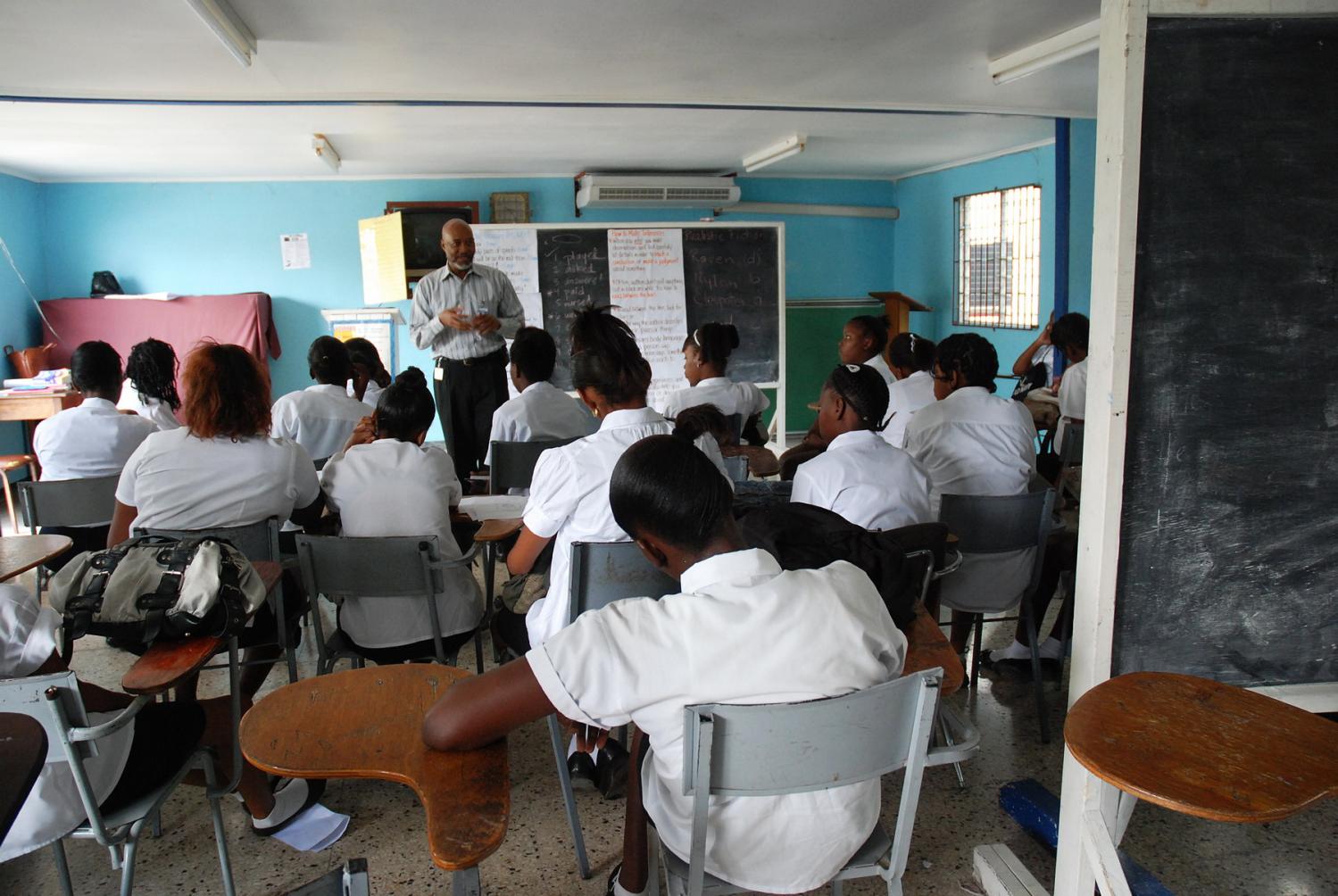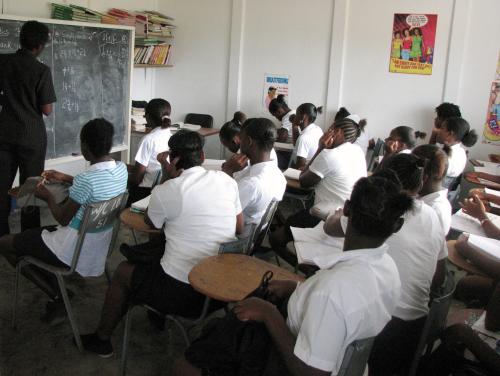The role of women in society has morphed from merely that of a mother, wife, and homemaker to one who is critical in decisionmaking, economic development, and labor market participation. Advocacy for equitable access to education for girls to ensure that they can take their rightful place in society has become prominent over the past two decades.
In this video, Dasmine Kennedy, 2017 Echidna Global Scholar, describes her work with school-age mothers in Jamaica.
One of the social problems that may inhibit women’s participation in education is teenage pregnancy. High rates of teenage pregnancy prevailed in Jamaica in the 1970s but have been declining since 2008. The rate, however, remains higher than the global average.
Pregnancy for some girls in Jamaica could mean the end of their educational pursuits. However, a policy to facilitate school reintegration after childbirth has opened the scope for continuing education.
This paper examines the prevalence of teenage pregnancy in Jamaica, the girls most affected, and where and when they are most vulnerable. The paper also discusses the provisions for continuing education under the National Policy for the Reintegration of School-Age Mothers into the Formal School System. It assesses whether the policy is reaching the target group and its effectiveness in addressing access to secondary education for teen mothers.
The findings indicate the prevalence of teenage pregnancy among 15-19 age cohort and among girls predominantly from low socioeconomic, rural, and inner-city communities. These communities for the most part have a high incidence of poverty, crime, gang warfare, and single-parent and extended-family households. Income-earning capacities of these households are predominantly low. The result also revealed that more teen mothers are attending school through the reintegration policy and that the policy is largely achieving their reintegration and completion of secondary education. However, for some girls, other social needs have to be addressed if they are going to benefit from a second chance at education.
Absenteeism, dropouts, financial and child care-related problems, and discrimination are among the issues that may prevent some girls from fully benefiting from a second chance at education. Lack of communication, data recording and management issues, and limited counseling and monitoring support may also thwart the effectiveness of the policy.
Against this background, the research recommended measures to close the policy and implementation gaps to include the development and implementation of a communication campaign and a comprehensive database of information on the teen mothers from pre- to post-reintegration. In addition, teen mothers experiencing financial difficulties need to access benefits through the Social Protection Project for low-income families.
The development of Jamaica depends on the human capacity of its people. With this in mind, everyone including teen mothers has to be educated and empowered to achieve their fullest potential in order to improve their lives and contribute meaningfully to the development of their country.






